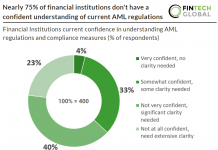In the incredibly complex world of money laundering, an increasingly common way for criminals to launder money is through money mules. What are they?
In a recent post by Flagright, the company explored the role of money mules in money laundering and how they are used in different types of schemes.
Flagright defined money mules are individuals who are recruited by criminals to transfer money or other assets on their behalf. They may be unwitting or witting participants in illegal activities, or they may be professional money launderers who provide their services to multiple criminal organizations.
Often, unwitting money mules are victims of scams, in which they tricked into providing sensitive information. The money launderers then use the details to transfer funds into the victim’s account and instruct them to withdraw the money and transfer it to another account of location.
Witting money mules, on the other hand, are individuals who knowingly participate in money laundering schemes in exchange for a fee or other incentives. They may be recruited through online ads, social media, or personal contacts, and may be told that they are participating in a legitimate business or investment opportunity.
Flagright said, “Regardless of their type, money mules are an essential part of many money laundering schemes. They allow criminals to move funds without raising suspicion and provide a layer of anonymity that makes it difficult for law enforcement to trace the source of the funds.”
Often, money laundering schemes that use money can take many different forms. Tehse include phishing scams, romance scams, employment scams and professional money laundering.
Flagright provided an example of a recent money mule scheme, where the US DoJ charged 21 individuals for their roles in a money laundering scheme that used cryptocurrency and money mules.
According to the DOJ, the criminal organization operated a sophisticated operation that involved phishing scams, romance scams, and business email compromise (BEC) scams.
Flagright explained, “The organization used fake websites and social media profiles to trick victims into providing their personal information, which was then used to open bank accounts and cryptocurrency wallets. The organization then laundered the stolen funds through a network of money mules, who received and transferred the funds on behalf of the criminals.”
What anti-money laundering compliance and fraud protection measures can companies take to prevent money laundering? Flagright cited sanctions screening, employee training, due diligence, transaction monitoring and KYC and KYB requirements as key tools in this fight.
Flagright concluded, “Money mule schemes are a serious threat to businesses and the financial system. By implementing AML compliance and fraud protection measures and collaborating with regulatory authorities, businesses can reduce their risk of being used to launder money and protect themselves and their customers from harm.”
Read the full post here.
Flagright recently partnered with Kenyan digital FinTech Fingo Africa to enhance the latter’s AML compliance and fraud protection capabilities.
Copyright © 2023 FinTech Global











